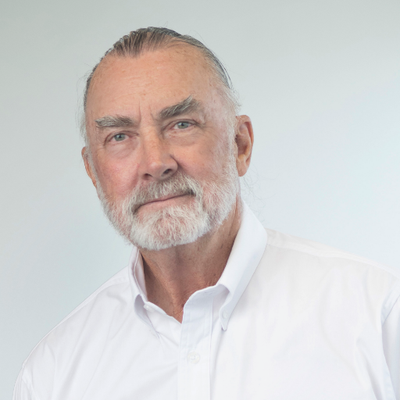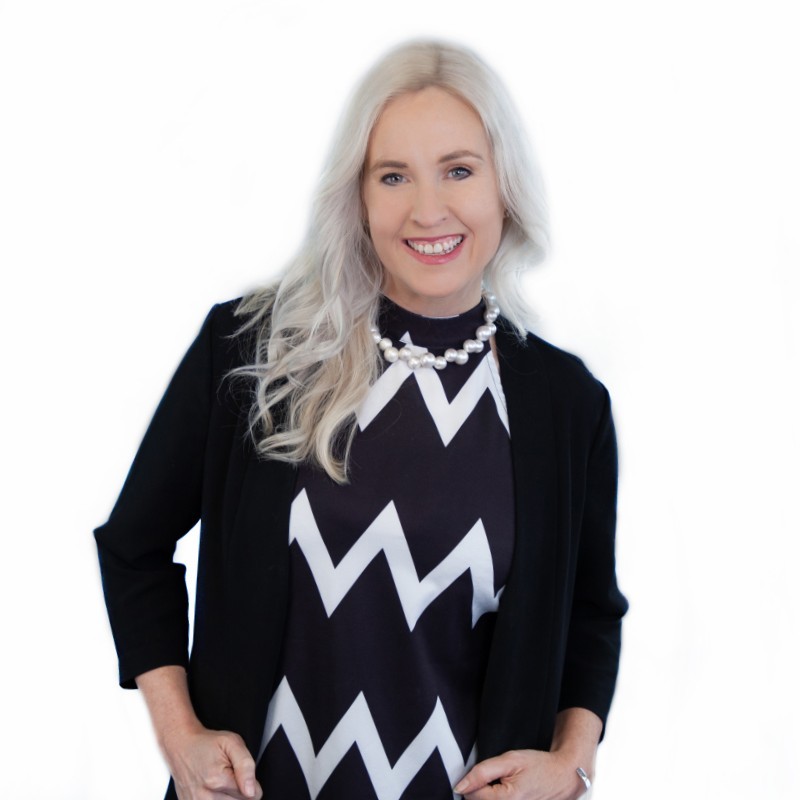What are we talking about?
The future of the office.
Why is the future of the office important for the future of work?
Where we work is extremely important. Not everyone is able to work from home effectively, so we need to have a variety of options for people.
What did Frank Cottle teach us about the future of the office?
As companies made the switch to remote work, many of them discovered that it wasn’t as hard as they thought it might be. But now, many CFOs are looking around and seeing 30,000 sq ft of office they don’t need anymore.
Businesses need three things: a product/service, capital, and flexibility. Real estate is one of the least flexible things a business can own.
Yet, everyone working from home is not a wise or efficient system. Even just thinking about the use of climate controls, space in houses, and many other factors make it not sustainable to just assume everyone will work from home forever. We need more options.
The concept of a corporate headquarters might survive, but it will just be a small team and everyone else is distributed.
Frank introduced us to the idea of “officing” as something you do, not a location. Modern digital workers don’t need a lot of stuff around them, but they do often need to be in different places.
Frank sees flexible workplace structures will be the likely future. These are closely located, small offices that offer all the essentials for a modern worker, while still giving a lot of the same advantages as the office.
Virtual and augmented reality can also play a big role as a 3D office can offer a lot of benefits to people and allow them to feel the connection with other people, or a particular location.
Frank points out how comfortable people have become with video conferencing. When it was first introduced, most people felt very awkward, but especially the last few months have made it very normal to have a video conversation with other people.
More from Frank Cottle
Today, our guest is Frank Cottle. He’s the founder and CEO of Alliance Virtual Offices. And this episode is Work Minus the Baggage. Hi, Frank. How are you doing today?
Neil, doing just fine. Thank you.
We are so excited to talk to you. You are a pioneer in a lot of ways in the world of remote work. So why don’t you give us a little bit of background about who you are and a very short glimpse because we’ve been talking before and there’s a lot to say, but just give us a quick background of who you are.
I’m not the youngest guy in the room, that’s for sure. My career spans more than 50 years. I started as a commercial diver during The Vietnam era working for one of our federal agencies, turned that into a yachting career for about 10 years and raced yachts and I broke a yacht around the world. And then in 1979, ’80, I started the company that we are the predecessor company to our current organization. And we started land banking, building buildings in which we established what were then called executive suites. And we built a number of projects across the southwestern United States in California, Arizona and Texas. That’s how we learned how to manage remote work. And that’s how we learned how to manage the technology behind it. We explored and built a lot of that technology with Bell Labs and GTE. We were the first commercial installation that simultaneously transmitted both voice and data over a single pair cable and we had to modify their big digital phones switches that were just coming out then, connect them to mini computers and build a custom box and in between to do all of that. But in 1980, ’81, we actually had simultaneous voice and data being pushed out to desktop units that were touchscreen, managing both telecoms and computing. And that was fully interactive with our clerical, secretarial, and administrative staff, providing all business services that were required to the clients and doing all billing and invoicing simultaneously. So we’ve pioneered operating systems to make businesses and buildings work.
I got to ask you, after all that technology that you’ve seen, back even in the ’80s, what is it that impresses you about where we are today? Do you feel like we’ve advanced much beyond we can put funny background screens behind us or is that about it?
I think the technology back then was, well, you mentioned the word pioneer. They say pioneers get stuck full of arrows. So the technology back then was, I mean, PCs didn’t exist. That was quite revolutionary. But it was so far ahead of what the common user understood that we spent most of our time explaining it and a lot of our time using it. So today, technology is ubiquitous. And the smartphone that I carry around is more powerful than the mini computer that was in that office, probably more powerful than a supercomputer of that era. We’re entering Gen Z, which is a first native generation that’s totally digital. And that’s exciting because they’re only going to think that way. So as we progress, people like myself that have gone from analog to digital and now we think in terms of virtual reality and augmented reality structures and things of that nature. That’s the only way that the younger generation thinks. It’s very exciting to me, very.
We’re talking here in 2020. So everyone’s talking about COVID-19. This massive instant migration we made to remote work. So what’s been your personal reflection on seeing this move? Is it like, well, yeah, it was supposed to happen a long time ago or what’s been your reaction?
It’s funny. We work with a lot of very large companies, global fortune 1000 types, and so many of them, the head of facilities has been working with the head of HR has been working with the head of IT, all on a giant initiative, like a giant ERP initiative to set up flexible work in their company. You can’t win the talent for battle these days if you don’t have a good flexible work program, people don’t want to work for you. So everybody’s been on the cusp of this looking at it as a giant thing. Then our current pandemic came along and they got kicked in the butt. And everybody just did it. And we find out from the reaction that we’re getting and talking to people, hey, this wasn’t so hard. Great. Now I can just imagine that same CFO who started that initiative, walking through the corporate headquarters with their mask on today, looking around and saying, gosh, we got 300,000 square feet here, it’s empty. And the company is doing just fine. I don’t need any of this. And I think that’s where it’ll go. Some of it, of course, but the concept of a corporate headquarters isn’t going to be a facility that’s got 10 floors of 50,000 feet and 5,000 people working there. It’s going to be a corporate headquarters, and you’ll have a core team and a support team there. But all of the people, so to speak, are going to be working, not just from their homes, that’s not realistic in the long term, but on a flexible workspace basis, and what that will do to the corporation is not just change the way they work, it’ll change their value structure to their shareholders. If you can shed half of the space that you have, from your balance sheet, which is a long term commitment, and exchange that with space that you have a short-term commitment to that doesn’t sit on your balance sheet, well, that frees you up from so much debt and liability that you can now raise additional layers of capital for growth. You can have better credit ratings, better returns, etc. And I think the issue around changes in work, there’s three things that all companies need. All companies that are going to grow need a good product, of course. They need access to capital. And now they need flexibility. If they don’t have flexibility, they will not be sustainable. So it’s almost contradictory to say you have to have sustainable flexibility now in your work structure and in your entire business organization. And that real estate is probably the least flexible thing there is and that is radically changing as a result of what we see here.
Before we get deep into the digital side of things, what do you feel like is the future of physical? What’s the future of the physical office? After this, I don’t think people are going to be rushing back to the office in large droves. There’s going to be this balance. We’re going to try to figure out what’s going to happen. So what do you think is going to happen?
I don’t want to get into the health side or the political side or any of that. But we’ve worked around the world. In this company, I worked around the world, everywhere in the world, for 50 years. I’ve seen I guess I’ll say 10 pandemics. I’ve seen any variety of recessions and depressions and wars, and all variety of things going on in different places. And I don’t think, this time next year, people are going to be going, oh, I’m afraid to go to the office. I think if you really analyze the data that we’re starting to see now, and I’m a data freak, we’ll probably look back at this and say, we might have overreacted a little bit. There’s certain things we should probably think about just in general on the cleanliness is going to be the new norm, that’s for sure, going to be a big emphasis in the way we do things. The way we organize space is going to be different. But you probably think of office space, as a lot of companies have always used the term occupiers, well, we have 1000 occupiers in this space, and that’s referring to the workforce that’s there. We’ve been thinking for the last five or seven years, that there are no occupiers anymore, there are only travelers. So we look at the workplace as a fluid. We don’t say go to the office, we think of the activity of officing. And we look at it as a fluid issue where you work from your home, you work from a remote workspace, that could be a co working or a business owner. You were on the road from a hotel or that and you’ll also work in your office, and I’ll use myself as a good example. I used to have a nice big, fancy office overlooking the beach here in Newport. I was real happy with myself. Today I’ve got about five or six offices and they’re tiny because I really didn’t need all that stuff. I need to be in certain places at certain times, that’s more important than having a big corner office anywhere. And those big corner offices, when you say digitally, how are things going to change? Those big corner offices are going to arrive starting in 2022 and ’23 in the form of software. So we’re working with some of the larger gaming companies right now developing virtual reality offices. So the amount of space necessary for a new structure, new office structure is going to be substantially less as a result of the technology we’ll be deploying in the form of software for those virtual reality offices, you’ll be able to create a 2,000-foot luxury office overlooking Park Avenue or Central Park or the beach wherever you want, very easily and function inside of that office and it’ll be a headset and a pair of haptic gloves. So that will change the space requirements, particularly in high density markets like New York. And the changes in space requirements as they’re reduced will change city function. And a lot of real estate’s going to end up being revalued and repurposed.
My wife’s a realtor and we were talking about even just the nature of houses after this as if people decide to do more working from home, if that becomes a large spike, most houses aren’t built for people to live in constantly throughout the day, only it’s a fairly recent phenomenon to see that. So even how houses, offices, everything else is set up in this idea. And like you said, you don’t need a ton of space to have an efficient office. You just need some dedicated room there. So that’s very interesting.
I think, too, though, that if everybody worked from their home every day, you would see that’s an incredibly inefficient structure. When people go into an office environment, they’re grouped, and in that grouping, you get certain efficiencies, HVAC is a good example. Energy overall is a good example. Right now you’re working from your home. And if it’s cold out, you have to heat your entire home to be comfortable working there. So instead of being part of a floor that’s heated, where there’s maybe 200 people even generating heat off the computers and the people themselves, you’ve got to heat your entire house. You’ve got to power your entire house. You’re carrying the burden of the office real estate costs on behalf of your corporation. And what we saw in the late ’80s, there was a big surge of the Clean Air Act for telecommuting. There was a big surge where telecommuting was actually mandated in certain environments if you have a company over a certain size, and we found that as soon as that happened that people were forced by their employer to go work from their house one, two, three, five days a week. Guess what? A lot of them came back and said, well, how much rent are you going to pay me? This might not be a safe workplace. I’ve got children, and I’ve got a piece of equipment in this house that might provide a safe workplace. What are the ergonomics in the household? Are they suitable? So when you talk about redeploying people to their homes and the way homes will be rebuilt, we’re going to have to consider all of those things and employment structures are going to have to consider those things as well. I think most employers will want to put their people into flexible workspace structures, take the balance sheet benefit, cut the commute time, etc. We’re seeing that the whole flexible workspace industry has been growing phenomenally for the last seven or eight years. And that seems to be the choice as opposed to putting people inside of their households.
So you’re imagining almost like neighborhood work centers where everyone’s going to be a biking distance away from a place where you can work with others?
Could be biking, could be walking, could be public transportation, or in California, we’re not going to get rid of our cars or we’re going to refuse that. It really depends on what culturally is going on in the neighborhood and in the world, as things are different in many other parts of the world for them. If somebody is going to look at something a little different, I think the way transportation works is going to be looked at a little differently. I don’t mind going to an office today. I’m already somewhat socially distanced, so to speak. But I’ll be darned if I’m going to ride the tube in London. So trains, public transportation, metros, subways, things of that nature, have to be rethought if you’re going to go down that road much more than office space.
Let’s make the shift to digital. What is it about the digital workspace that we’ll need to advance in most companies? What have they missed in this transition that we’re making now?
I think everything is very much set, fixed in place. Mobility is growing. But mobility will have to be the watchword in the future, absolute mobility, and it won’t be the sales team and it won’t be that a particular group is going to have to be everybody, going to be highly mobile and have equal amount of functionality when they’re mobile. And that’s going to mean just gobs of bandwidth. And there are certain areas in Europe right now that are saying, well, let’s see, bandwidth is almost a right. It’s not a privilege anymore. It’s a right because you can’t get social services. You can’t function without it in the world. And so, as companies rethink mobility, that need is going to be even greater. And our ability to meet digitally will change a little bit. Right now we’re looking at holographic structures. We had our first holographic receptionist in 1984. So we were experimenting. She was in this box full of mirrors. It was really creepy, but it worked. It worked. So holographic meeting structures are coming along. I think we’re on the cusp of that where you can enter into a room with another person, have a two-way structure. I know that virtual officing will become virtual reality officing. So you’ll be able to meet more in a three-dimensional structure as opposed to a two-dimensional structure like we do today. I think everybody’s comfort level, take yours and mine as an example. We’re both on video right now. Five years ago, we would have been doing screen sharing and voice. Only in the last, I’ll say 18 months or so, to where people have gotten over the self consciousness of being on video and getting the comfort level and really express themselves as if they were in the room and as comfortably as if they were in the room. As that continues to grow, then the migration to virtual reality officing and holographic meetings and things of that nature will migrate as well. We won’t have a officing structure like we do today in 10 years. It will be 90% digital, and the space will be repurposed. We’ll free up a lot of space for residential or a lot of space for growth. We don’t need any more buildings in the world, in my opinion, right now.
Frank, we’re calling this episode Work Minus Baggage. You mentioned earlier about Gen Z coming up, a totally native generation building businesses. What do you think is the baggage that they are going to drop and never come back to that the rest of us are going to give them and what are they going to keep?
I don’t think they’re going to drop any baggage. I think they’re going to arrive without it. I think there’s a big difference. I’ll use travel as a good example. We used to see people travel from place to place, they would have three or four suitcases and all sorts of stuff. Now you see the same three or four people, it’s all carry on or it’s a backpack. So we’ve all shed a lot of things and we found out we just don’t need. And I think Gen Z, because of its comfort in the digital environment, it’s not going to arrive with a baggage in some respects. Dependence of Gen Z, however, on being totally glued to technology is going to be interesting to see how that changes the social end of society and continues to see a migration there. I think that the group will be very much free thinking, very much demanding, will not be feeling as entitled as some other generations have found. And also they’re going to want to explore what to do, not necessarily be told what to do. So I think they’ll be much more objectively driven as opposed to task driven.
I like that. I think there’s a lot to look forward to, a lot to see what’s going to develop. Frank, thanks so much for not only being on the show, but just all the work you’ve done and paving the way for this. I know it’s not just one person that’s doing anything. But we need people to be on the forefront of this stuff decades ahead of what’s going on. So I appreciate that work and helping us get to where we are now.
Well, my pleasure and anything we can do to help you, just let us know.
Sure. And where can people go if they want to learn more about you and your companies?
The easiest two places I’ll give you would be alliancevirtualoffices.com. That tells a little bit about one of our core companies and I can be reached through that company. Or a publication that we have called allwork.space. If you’re just interested in flexible workspace industry and what’s going on and all the different activities around mobility in the workplace and remote working, All Work is by far the largest publication where you can resource that information.
Excellent. Well, thanks so much, Frank, for being on the show and sharing what you know with us.
My pleasure.
A timeless futurist with primary expertise on “The Future Of Work”, Frank Cottle is the Founder and CEO of Alliance Virtual Offices. Frank is a truly experienced business leader and an engaging speaker who will appeal to listeners of all ages and backgrounds, from Gen Z to Boomers, all over the globe.
From his home (and sometimes his coworking center) in Southern California, Frank will offer enlightening insights across a huge range of topics in his easy-going but authoritative So-Cal style. Investment banking, finance, commercial real estate, workplace technology, the future of work, even windsurfing and cycling – Frank has lived and studied them all – and he is happy to share his visionary insights and experiences to help listeners explore fresh perspectives on business, lifestyle, and new ways of working.












